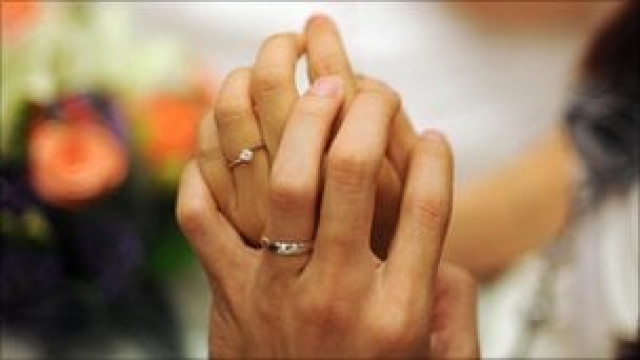Forced marriages
To uproot the malaise of child marriage, clerics and panchayats need to be convinced and co-opted.

Forced marriages
However, the facts on the ground are that child marriages are distressingly common in Pakistan. Children are often betrothed at birth and marriages of pre-teen girls with men thrice their age barely raise an eyebrow. A few months ago in Sargodha, two other marriages — a watta satta — were prevented by the police: a 14-year-old girl was being married to a 30-year-old man, while a 12-year-old girl was being married to a 50-year-old. The Rahnuma-Family Planning Association of Pakistan (FPAP) estimates that about 30 per cent of marriages in Pakistan fall under the category of childhood marriages. It is not just girls who are married off young, but often both the bride and the groom are barely in their teens when they are forced into marriage by family.
One of the causes of such marriages is poverty, as illustrated in this particular instance. Children are looked upon by their parents as property and in the absence of money to settle debts, they can easily be traded instead. Not only do these marriages constitute a gross violation of human rights, they also contribute to Pakistan’s lamentably high fertility rate. Unfortunately, these practices have become deeply ingrained in our culture and it is the parallel justice system — the panchayats which are called upon to settle various disputes — that often decides that such marriages are the way to resolve conflicts.
Also culpable are the clerics who willingly solemnise the marriages of children, though it violates the conditions of a nikah and flies in the face of Islamic edicts. To uproot this malaise, it is these clerics and panchayats that need to be convinced and co-opted.
Published in The Express Tribune, April 22nd, 2012.















COMMENTS
Comments are moderated and generally will be posted if they are on-topic and not abusive.
For more information, please see our Comments FAQ